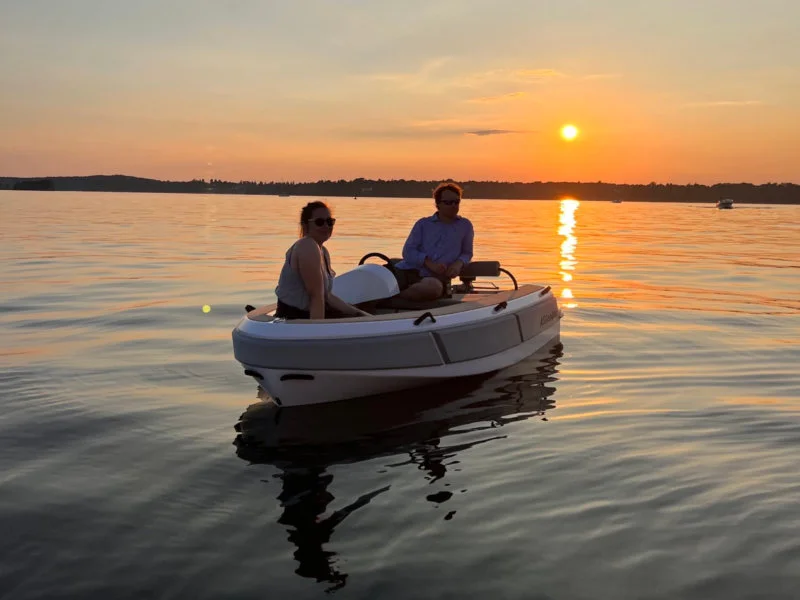AST – Yachts & Composites was founded in summer 2017. The summer when the fleet of the racing A-Class catamarans started to foil. Among them CEO and owner Thilo Keller, who invented the ACC – Automatic Cant Control, the very first stable foil system. Thilo has been sailing and racing A-Class catamarans for almost 2 decades, won 20 international titles and always pushed the technical boundaries of this development sailing class. Not only did he built his own boats since he couldn’t afford a new boat as a student, he also started his first serial production in 2010 when he was 23 years old. He majored in Naval Architecture to quench his thirst for knowledge and specialized in hydro dynamics and yacht design.
During a sailing regatta at university he met Catarina Jentzsch, the second future CEO and owner of AST. They soon had their first project together: A solid wing for the A-Class weighing only 26kg with a sail area of 13.94m².
Both finished their Master’s and Diploma studies and worked several years in the industry before they decided to run their own projects again. AST started their business with what they know best: Building high-performance boats and light weight composite parts.
The first serial product to launch was The Foiling Dinghy. A single-handed dinghy with the trickled-down foil system from the A-Class racing. The idea was to bring foiling into the mass market: Foiling for everyone. The Foiling Dinghy turned out to be a huge success with 120 boats built in the first 2 years of serial production. 2020 they presented their first rigid carbon tender with the pedigree of their racing yachts. The ASTender is another example of AST’s capabilities to build boats from sailors for sailors. Throughout the young history of the company they’ve always remained true to their ideals of industrializing boat building in their home country Germany. And they’re just getting started.

The aim to reduce our carbon footprint starts in the design process of our boats. The ASTender is so much more efficient than a RIB it only needs a minimum of power and therefore fuel. Due to the light weight it can easily be run on electric drives. The outstanding build quality ensures a lifetime of more than 20 years. In the production we try to minimize pollution, energy consumption and also try to waste as less raw materials as possible. Our composite parts are made in a closed-mould process with almost no emissions. All the dust and chemical gases are filtered and collected.
In our opinion even the small things make a difference: Wherever possible we use paper mixing cups and if we have to use plastic, we try to reuse them as often as possible. Same accounts for the cradles and jigs, we there only use renewable raw materials such as wood. Our shipyard is settled in modern buildings with the highest standard of insulation to not only maintain a certain temperature level for the process temperature but also to reduce the required heating energy.
Recyclable fibers on structural parts
Of the boat built from recycled material
The PET foam core of an ASTender containing up to 700 recycled plastic bottles.
All models are available with powerful electric engines.
NOV 17 – 19, 2026
APR 22 – 26, 2026
JAN 17 – 25, 2026
To provide you with the best experience, we use technologies such as cookies to store and/or access device information. If you consent to these technologies, we may process data such as browsing behavior or unique IDs on this website. If you do not give your consent or if you withdraw your consent, certain features and functionality may be affected.